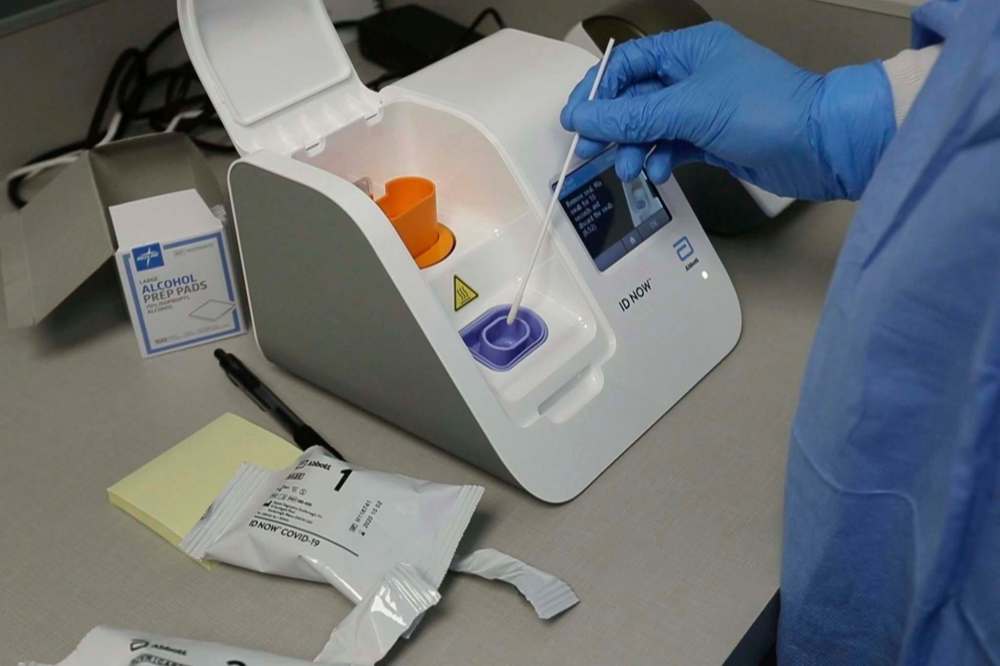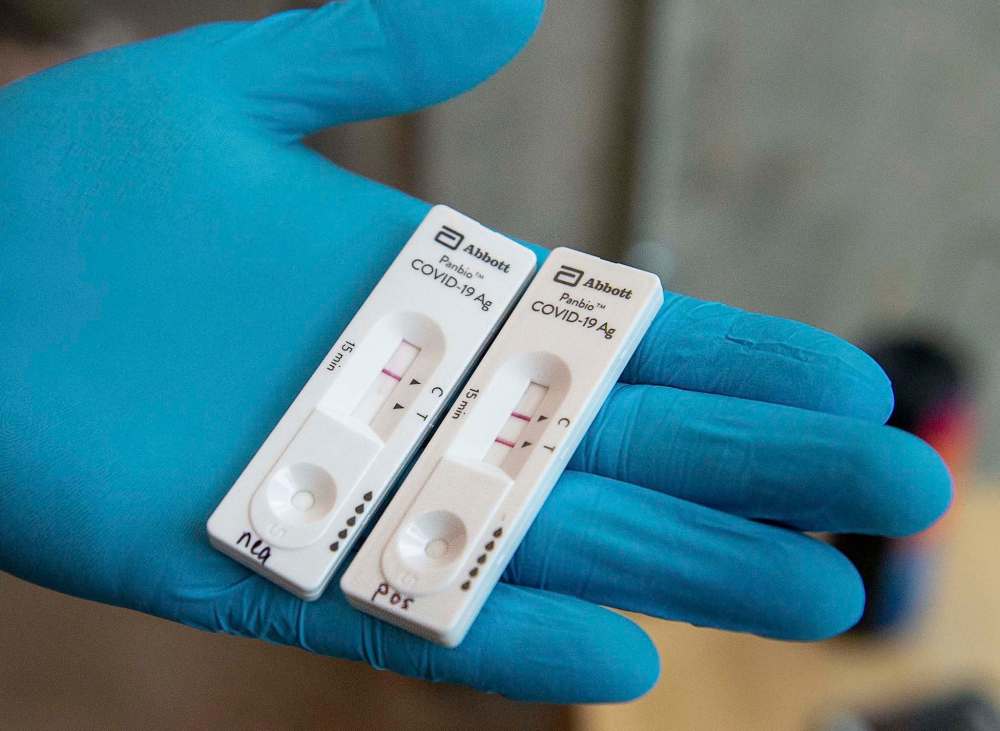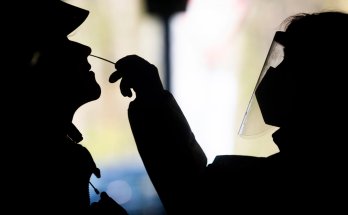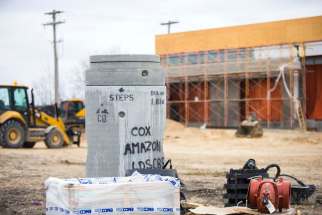Need for speed Data show province rolls out rapid-testing at slow pace
Read this article for free:
or
Already have an account? Log in here »
To continue reading, please subscribe:
Monthly Digital Subscription
$0 for the first 4 weeks*
- Enjoy unlimited reading on winnipegfreepress.com
- Read the E-Edition, our digital replica newspaper
- Access News Break, our award-winning app
- Play interactive puzzles
*No charge for 4 weeks then price increases to the regular rate of $19.00 plus GST every four weeks. Offer available to new and qualified returning subscribers only. Cancel any time.
Monthly Digital Subscription
$4.75/week*
- Enjoy unlimited reading on winnipegfreepress.com
- Read the E-Edition, our digital replica newspaper
- Access News Break, our award-winning app
- Play interactive puzzles
*Billed as $19 plus GST every four weeks. Cancel any time.
To continue reading, please subscribe:
Add Free Press access to your Brandon Sun subscription for only an additional
$1 for the first 4 weeks*
*Your next subscription payment will increase by $1.00 and you will be charged $16.99 plus GST for four weeks. After four weeks, your payment will increase to $23.99 plus GST every four weeks.
Read unlimited articles for free today:
or
Already have an account? Log in here »
Hey there, time traveller!
This article was published 26/04/2021 (1694 days ago), so information in it may no longer be current.
OTTAWA — They’re called rapid tests, but Manitoba appears in no hurry to use them.
At least 94 per cent of rapid tests Ottawa has sent to the province remain in a stockpile, while just 1.26 per cent of all rapid tests in Manitoba had actually been used as of this past Friday, according to new federal data, as well as provincial figures obtained Monday by the Free Press.
Manitoba is the only province that can’t seem to tell Ottawa how many of the federal tests it has distributed have actually been used.

Rapid tests are used to detect the coronavirus in as little as 15 minutes, but they’re nowhere near as sensitive as the regular PCR tests that are mostly done in large laboratories. They aren’t meant to definitively say whether someone has COVID-19; instead, they tend to detect people who don’t yet have symptoms but carry high viral loads, which are often the ones who go on to infect multiple people.
Ottawa had doled out substandard rapid tests, so Manitoba has instead relied on better ones, Premier Brian Pallister said.
“We took the step of purchasing better equipment that does a better job,” he said Monday.
Yet the province has no plans to return the tests to Ottawa.
The Public Health Agency of Canada recently published the number of rapid-test kits Ottawa sent to each jurisdiction, and how many each province has distributed.
Manitoba got 929,248 tests from Ottawa, and distributed 28,490 of them, which would amount to three per cent, according to the PHAC’s website.
Not so, says a Manitoba Health spokeswoman.
“The data you are referencing is dated and does not represent an accurate or the current rapid testing landscape in Manitoba,” wrote the spokeswoman.
Manitoba had distributed more than 50,000 rapid tests from Ottawa as of Friday along with more than 20,000 tests it independently acquired, called the Songbird Hyris bCUBE, she said.
Last week, the province announced it was rolling out rapid tests to settings such as a Winkler abattoir, Air Canada, a northern mine, wildfire workers and in personal care homes.

Up until then, rapid tests had mostly been used for asymptomatic teachers and school staff, as well as in certain rural health centres.
“With the launch of our asymptomatic rapid testing screening program, and the ability for non-health care providers to perform the antigen based rapid test, we expect to see an increase in both our rapid test deployments and usage in the coming months,” the Manitoba Health spokeswoman wrote.
Abroad, rapid tests have been common in parts of western Europe for months, for everything from weekly screening of schoolchildren to vetting customers entering bars.
That’s not the case in Manitoba despite a program at Red River College that quickly trains people on how to use the tests.
The Canadian Federation of Independent Business hopes Manitoba will roll out rapid testing to smaller firms, arguing it could help get the third wave under control and keep numbers low.
“Ideally this could be used as a tool to help businesses open more, or maybe to bring in clients from outside the province,” said Jonathan Alward, the group’s Manitoba director.
The province says spread is largely due to home gatherings instead of business exposures, he said, adding rapid tests could help ensure it’s not just big businesses welcoming customers in a few weeks when cases drop.
“It’s an imperfect test, and we recognize that, but it could possibly serve a role to help businesses operate more,” said Alward.
Manitoba is the only province that has given the federal government no data on how many distributed tests from Ottawa have been used for any of the three brands of tests sent to provinces.
“Manitoba’s usage data changes daily and is limited to what is reported in by a partner organization at a given time,” a provincial spokeswoman explained.

“The most recent data shows nearly 12,000 rapid tests had been administered, across various settings.”
That would mean 17 per cent of distributed tests have actually been used in Manitoba, amounting to 1.26 per cent of the total rapid tests in the province, including the ones Ottawa sent.
Manitoba has had a stubbornly high test-positivity number, which many virologists say indicates the province isn’t testing enough people, but the premier noted Manitoba has gotten better at performing the full PCR tests, meaning there’s likely less demand for a screening test.
“I think we’re in better shape than we were at the start of the second wave. Not just with more people being aware of the importance of following the health rules… but also in terms of our ability to respond to testing (and) tracking.”
— with files from Carol Sanders
dylan.robertson@freepress.mb.ca






